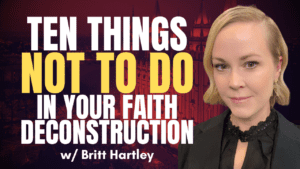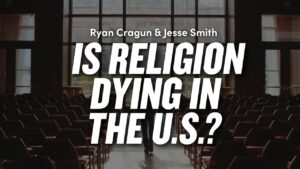Dr. Dan Lonergan is an anesthesiologist at Vanderbilt Medical Center who specializes in pain management and addiction. He has also experienced his own Mormon faith crisis/transition, and is currently in a mixed-faith marriage.
Topics for today’s podcast include:
Part 1:
- Dan’s own faith crisis/transition.
- Dan’s experiences navigating a mixed-faith marriage.
Part 2:
- Dan provides a model for addiction
- Discussion surrounding the stigma that accompanies addiction, especially in faith communities
- Tips from an expert in overcoming addiction.
Part 1:
Part 2:
Part 1:
Part 2:




11 Responses
Grew up in Nashville (Franklin, technically). I’m in much of the same situation. God speed, Dan!
Thanks to Dr. Dan Lonergran for this awesome 2 parter. I loved hearing your transition story and how you get Sonic during priesthood. As someone who has suffered from chronic pain for 7 years and steady oxycodone usage, this podcast was very useful and appreciated. God bless.
Wonderful episode! I enjoyed part one, but part two is really so needed. As a mental health professional, I thank you!
John and Dan, thank you for the interview. Perhaps my favorite thing that Dan said at the end was affirming how good the Mormon people are and the church likely does not even realize this.
Great discussion. I also has a question. It was mentioned how staying away from opioids is best until the mid 20’s. What impact do psychosomatic drugs have if started on children and adolescents? ADD drugs?
I must correct you on one thing John – Dan IS a very extraordinary, extra special person! I met him here in Adelaide when he was on his mission, and we spent a P-day being tourists, which allowed these young men to just be young guys for a day. It was very clear to me that Dan was a special person, and none of his accomplishments have surprised me. He was destined to be something very special.
Good episode; but John, your repeated “freeloader” comments come across as rude. I’ve made about $6,000 this year and my healthcare costs are going to be shooting through the roof next year thanks to the saboteur-in-chief. “$10, $20, or $50 a month” is not an option for me right now. I’m glad you’re on Patreon now, because it allows things like $1/month, which is more manageable.
I’m sure it’s frustrating for you to know there are non-poor listeners who are not paying. But I hope you’ll become more sensitive on this topic and start using different phrasing that doesn’t sweepingly condemn your non-paying listeners. Every time you call non-paying/low-paying listeners freeloaders, my impression is that you’d rather that people on limited incomes not listen at all.
Sure—I can stop listening. But if that *is* what you want—people who can’t pay not to listen—please be more explicit in your request, or just put the entire podcast behind the Patreon paywall.
Thanks!
Thank you so much for this podcast. A close family member is dependent on opiates and benzos, and this information was enlightening on so many levels. Thanks, Dr. Dan!
Loved this, all the best Dr. L , from P in KC.
What does Dr. Lonergan think about Vivitrol? Also, if a heroin addict has ADHD history and/or anxiety, is it better to treat those specifically and skip Suboxone type therapy; or, use both Suboxone and medication treatments for ADHD/anxiety? If a heroin addict was in jail and got clean would you still recommend Suboxone upon release from jail? Is there a purpose in Vivitrol, if the individual was self-medicating with heroin?
I really appreciated Dan’s words on opioids. My 13 year old daughter had surgery this summer and was prescribed hydrocodone with the instruction, “make sure she takes the pills on schedule to the pain is manageable.” She took a pill every 4 hours for 2 weeks. After that she stopped eating for 4 days until she ended up in the ER. She had a 5 day hospital stay while they couldn’t figure out what was wrong. But the drugs kept coming, now in IV form. Finally the verdict is that she was suffering symptoms of opioid addition. She had a horrible drug withdrawal and was quite difficult to be around for a few months. Her eating never fully recovered. Sadly, I think she has permanent damage to her digestive system.
All this happened while I was in between jobs and were moving. I wish I had heard this podcast prior to her surgery, but I’m grateful to understand what happened after the fact. Hopefully this story can be of use to others.